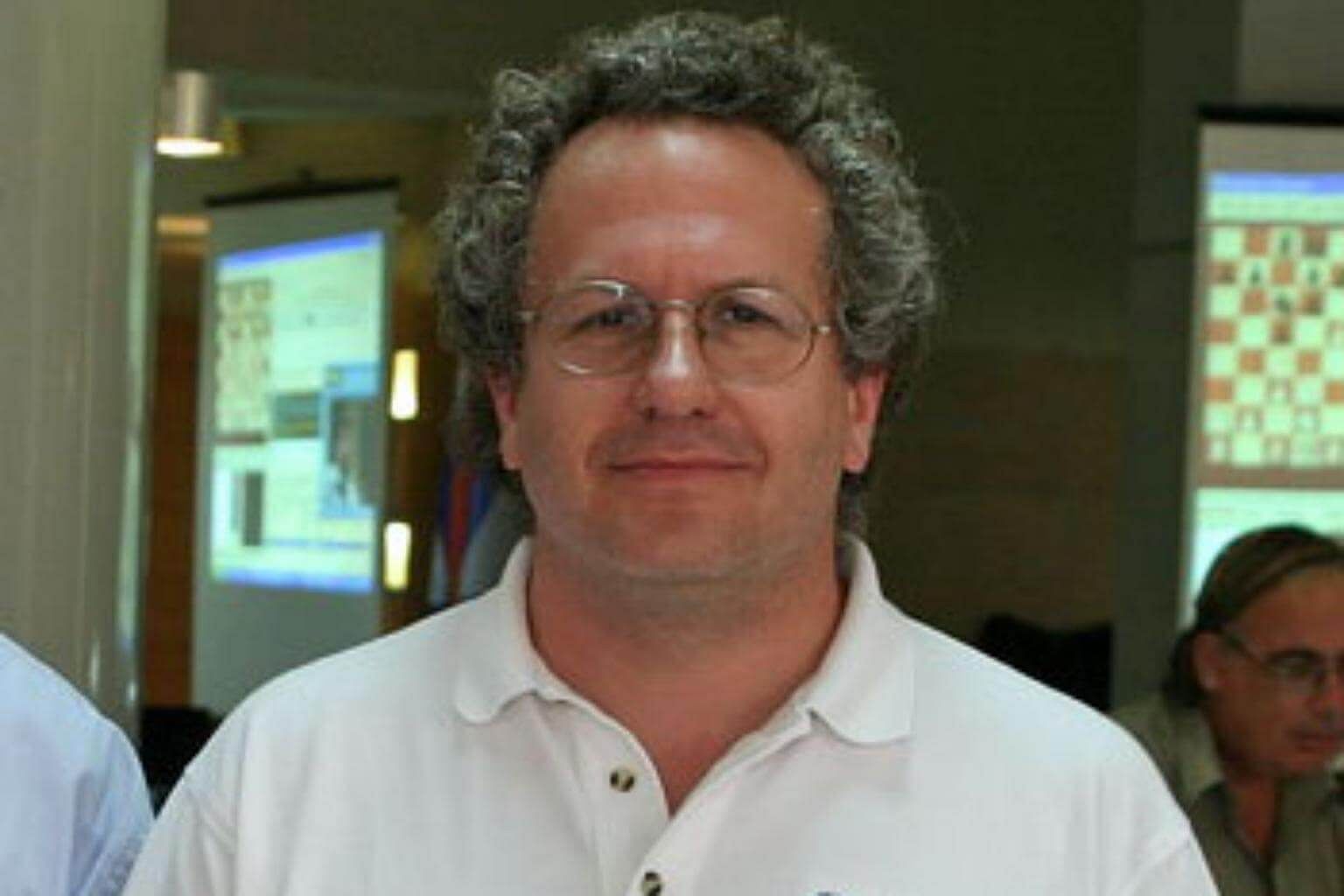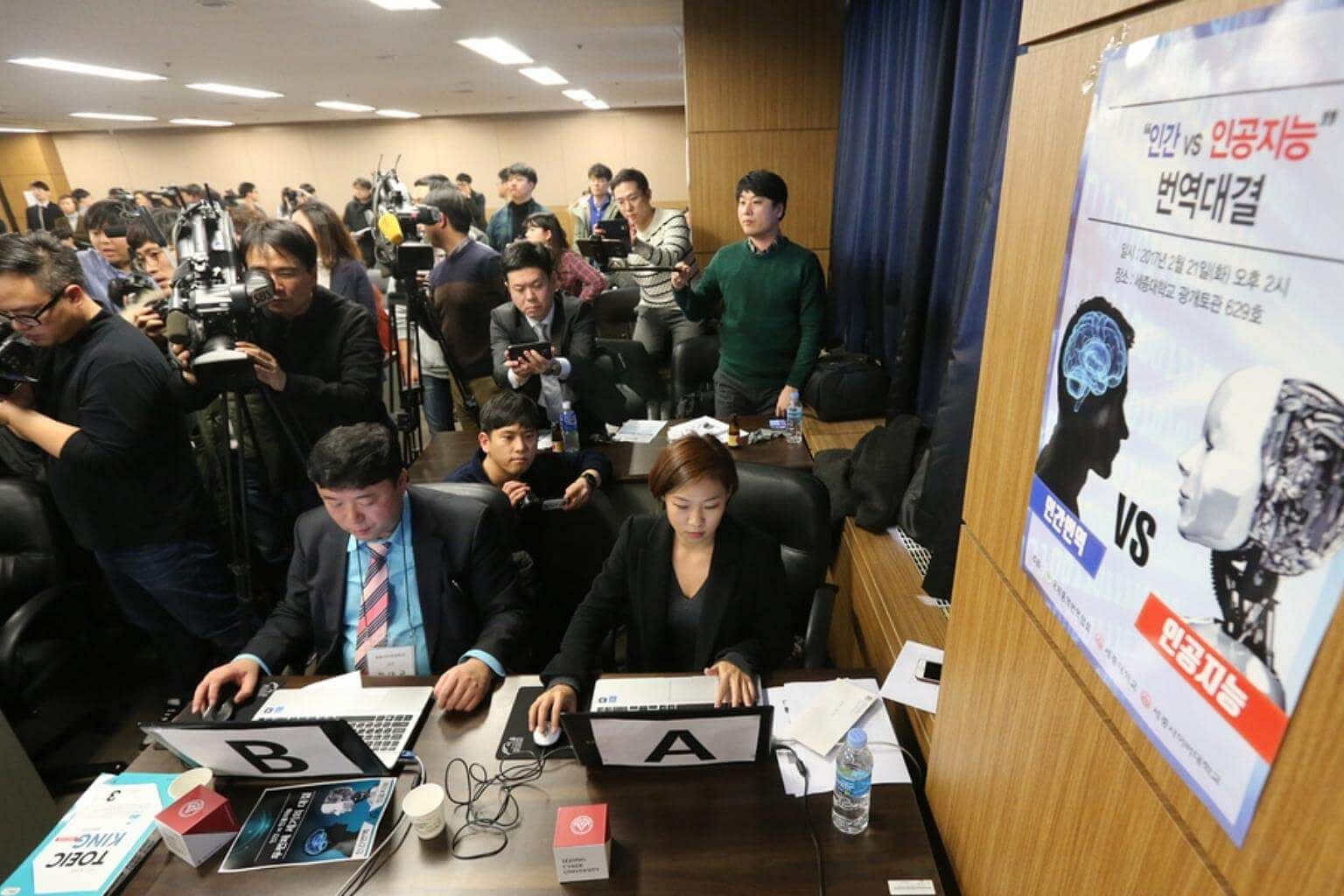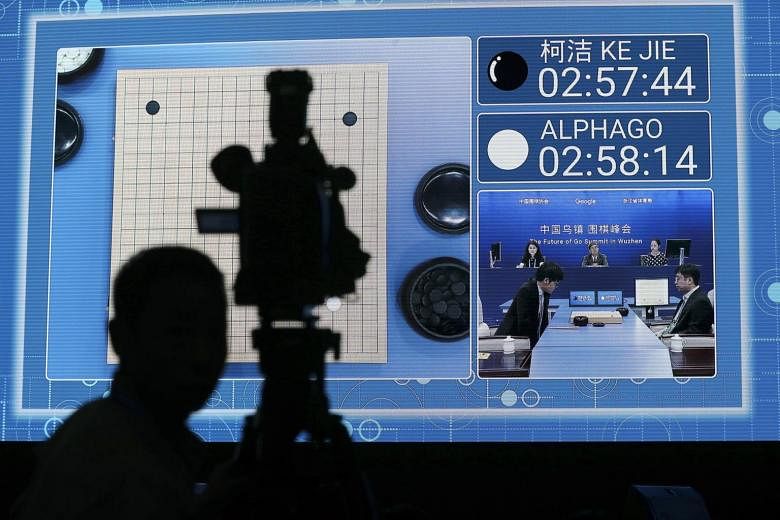Tech giant Google's AlphaGo game programme beat the world's top-ranked player in the ancient Chinese board game of Go on Tuesday (May 23), reported Reuters.
AlphaGo took the first encounter in a highly-anticipated three-game series against world No. 1 Chinese Ke Jie, a year after it beat South Korean grandmaster Lee Se Dol.
Lee's loss marked the first time a computer programme beat a top player in a full contest of Go, a game deemed to be one of the most difficult for computers to grasp.
Google had to resort to advanced artificial intelligence (AI) to create AlphaGo.
AlphaGo is just one in a long line of computer programmes to challenge the human mind in intellectual games.
Here are five other human-AI showdowns:
1. Chess
In a historic chess game, computer giant IBM's Deep Blue supercomputer beat then-reigning world champion Russian Garry Kasparov.
The defeat came in the first game of a six-game match, throwing Kasparov and the world for a loop.
The 1996 game marked the first time a computer had beaten a reigning world champion under standard time controls.
Kasparov would later rally to decisively beat Deep Blue over the six-game series, but the damage was done: a seemingly-inscrutable game with more permutations than atoms in the universe had begun falling to technology.
Kasparov played a heavily-upgraded version of Deep Blue the following year, only to be defeated in a similar six-game series.
2. Checkers

Unlike chess, checkers was computationally "solved" by computer scientist Jonathan Schaeffer in 2007, who detailed his team's findings in scientific journal Science.
Any human or computer can only draw at best, but never win, against Schaeffer's programme - named Chinook - assuming absolutely perfect play from the start.
Chinook was the first computer to become world checkers champion in 1994, after its opponent American Marion Tinsley - widely-regarded as the greatest checkers player ever - withdrew from competition due to pancreatic cancer.
Chinook drew six games in a row against Tinsley before his premature retirement from the competition.
It defeated Don Lafferty the next year by a single game, before Schaeffer withdrew it from competition to refine it till it became invincible.
3. Poker

Researchers from Carnegie Mellon University defeated four top poker players in January through Libratus, a poker-playing AI.
In an epic match spanning over 120,000 hands of cards, top players Dong Kim, Jason Les, Jimmy Chou and Daniel McAulay lost US$1.76 million (S$2.4 million) worth of chips to the AI.
The first-ever victory was hailed as an important step towards machine dominance in the game.
4. Jeopardy
The American quiz show served as a proving ground for IBM's Watson, a supercomputer capable of understanding natural spoken language partially-inspired by Deep Blue.
In 2011, Watson competed against Ken Jennings and Brad Utter, the two most successful contestants in the history of the show, and won the top prize of US$1 million.
To ensure fairness, Watson would trawl the Internet for information on its days off, but be disconnected from it during contests.
5. Language Translation

The nuances of language remain a stumbling block for AI programmes, with human translators besting translation AI programmes from Google, translation technology specialist Systran and South Korean Internet provider Naver in a Korean-to-English translation competition.
Two news articles in Korean were selected at random for the competition held in Sejong University in February.
A total of 50 minutes were given to translate the texts and the translated works were evaluated by two professional translators who awarded the human translators victory, reported Yonhap News Agency.
The organisers added that the human translators scored an average of 25 out of 30 in translating Korean into English, while the AI software scored between 10 and 15.
Sources: Time magazine, Scientific American, Science Daily, Yonhap News Agency, New York Times


